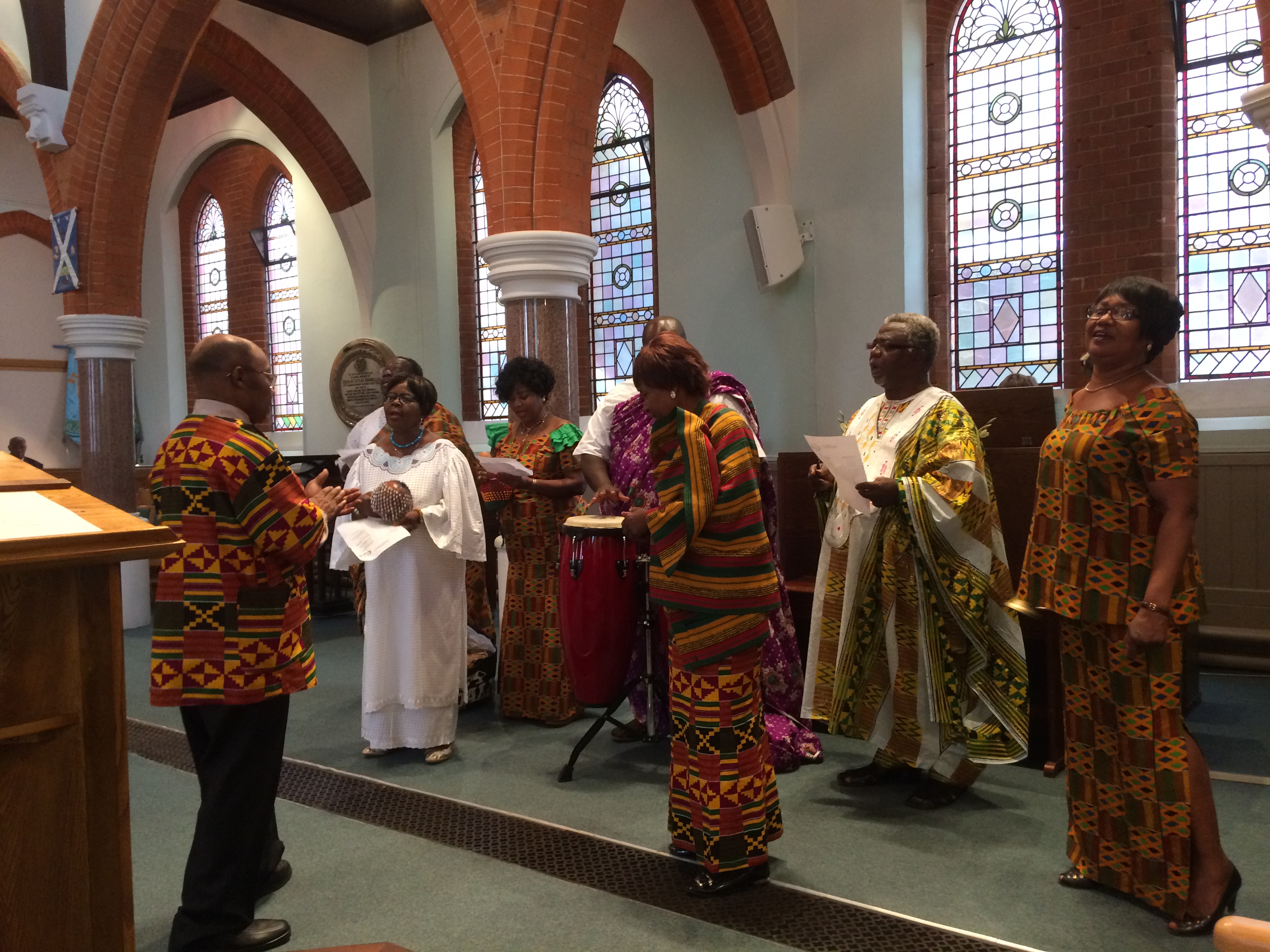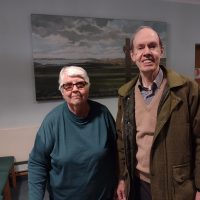Sermon 17th Sept – Harvest and Constance Coltman anniversary, Revd. Sue Mccoan
Deuteronomy 26:1-11
Matthew 18:21-35
Today is a double celebration: our harvest festival, and also the 100th anniversary of the ordination of Constance Coltman, the first woman to be ordained in a mainstream denomination in Britain. She was ordained into the Congregational Church, which then became part of the United Reformed Church, so we can claim her as our own. So I’m going to talk a bit about Constance Coltman, and that will lead us on into thinking a little more about harvest. If you have already read all this in Reform magazine, or elsewhere, this will be a recap, but her story is worth knowing.
She was born Constance Todd, in 1889, in Putney, not far from here. The eldest of 4 children, she enjoyed a privileged upbringing, not least the privilege of education. She went to a private all-girls’ school from where she won an exhibition to read History at Oxford. Women in those days, 1908-11, could study there but they had to ask permission to attend lectures and were still not able to be awarded degrees – that didn’t happen till 1920. Without a degree, it was almost impossible to enter the professions. There were a tiny number of women doctors, and in 1910 the first female accountants, but no women diplomats, barristers or architects – or church ministers.
Yet Constance felt God was calling her to ministry. As she was in Oxford, she approached the principal of Mansfield College, Dr Selbie, and asked if he would accept her for ministerial training. In a long and searching interview, Dr Selbie kept in mind the question, ‘if I had a male candidate with these abilities, with this sense of call, would I take him on?’ The answer was yes, so he agreed to accept Constance – with the proviso, still given to students training for URC ministry today, that being trained did not guarantee being called to a church.
Constance and her fiancé, fellow student Claud Coltman, were ordained as ministers on 17th September 1917. The following day they were married. It mattered to them both to do things that way round, so that Constance was seen to be ordained in her own right and not as some kind of auxiliary to her husband. They shared their ministry together, serving in deprived areas, then Oxford, where Constance had 3 children; they raised a family; Constance supported young mothers and other women in ministry, as well as being a founder member of Christian CND. When she retired she learnt Swedish so she could support women seeking ordination in the church of Sweden. What a woman!
Kirsty Thorpe, in her piece in Reform, suggests we might be disappointed to know that Constance Coltman came from a privileged background. Now, I like a working-class hero as much as anybody. But, with all due respect to Dr Thorpe, it’s a bit hard to suggest that privilege makes her achievements less impressive. Without her education, Constance would have been in no position to train for ministry, regardless of her call. Without her private means, she would not have been able to sustain her ministry and combine it with motherhood as she did. Though others might not have been able to follow immediately, she had set a precedent in the free churches, and I for one am deeply grateful for what she did.
So here is an example of someone who enjoyed privilege, and made the most of what she had in serving God and being a blessing to others.
She stands, therefore, in complete contrast to the shabby little character in the parable that we heard in our gospel reading. Jesus tells to story of a king’s servant who had racked up massive debts to the king. We don’t know how he got into debt but that’s not the point; the point is that he has no way of paying. He is about to lose everything – including his wife and children and his own freedom. In desperation, he throws himself on the mercy of the king, and the king wipes out the entire debt.
Suddenly, all the things he was about to lose are his again. His whole life has been given back to him, and he can make a fresh start. This is an incredible privilege. Does he rejoice? Does he give thanks? Not a bit of it. His attitude seems to be, ‘I’m not letting that happen again. From now on I count every penny – including that fiver you owe me.’
And in his meanness, he ends up losing the gracious gift of the king; the debt is reinstated, and he’s thrown into jail.
So we have Constance Coltman, who had good fortune and made the most of it , and we have this servant in the parable whose fortunes shot up and down but who never passed on the generosity he had received.
Jesus offers this parable in answer to a question about forgiveness, but it applies more widely, to illustrate a general truth about the human condition. That is the truth that, when we are in distress, we will call for help to God or anyone who might listen; but when things are going well, we forget where our help came from and take the credit ourselves.
The same point is made in a joke, which I may have used before and will almost certainly use again. It is of the businessman, who is on his way to a meeting, driving round trying to find a parking space. There’s nothing. He gets more and more anxious, until in desperation he calls out in prayer, ‘God! I’ve not been to church for years but find me a parking space, and I will come every Sunday for the next year and make a big donation to church funds’. At that very moment, a car pulls out of a space just a few yards ahead, right outside the door of the office he needs to get to. What a relief! The man calls out again. ‘Ok, God, forget what I just said – I’ve found a space myself’.
If the joke is old, the human condition it represents is older still. It goes back to at least the time of Moses, around 1250 BC. The people of Israel had cried out in desperation in their slavery in Egypt, had lived hand to mouth in the wilderness and been glad of the manna God provided, but God knew full well that the minute they got settled in the Promised Land and they would start thinking that their crops, their businesses, their prosperity were all their own work. Haven’t we done well?
God gives Moses the instruction for harvest offerings, as we read in Deuteronomy, so that at least once in every year the people would set aside time to rethink what they were doing, and to put God back at the centre of their lives.
They are to do two things: offer the first fruits, and tell the story.
Offering the first fruits of the harvest is different from the rural traditions of harvest celebrations in this country, which are about harvest home, when all is safely gathered in, the workers have earned their rest and all is ready for the winter. Moses tells the people to offer the first picking of the crop. Before they have eaten, or sold, or stored, or made us in any way of what they have grown, they are to make an offering of the first picking to God, as a reminder that all this belongs to God anyway, and that all that they have comes from God.
When I was growing up in the Church of England, our offertory prayer included the words. ‘All things come from thee, O Lord, and of thine own do we give thee’.
So the first part of the harvest is to offer the first fruits to God. And the second part is to tell the story of their ancestors. In another festival, the Passover festival, they tell part of the story, the rescue from Egypt or Exodus. But here, for harvest, they are to tell the whole story – from before they went to Egypt, through initial success there, then through slavery, and then the exodus and being brought to the Promised Land. Like the unforgiving servant, it’s a story of great changes in fortune. And it serves to remind them, again that God is in charge, but more importantly in this case that life has not always been like it is now for God’s people: and that living in plenty, as they are now, is no more their right than living in poverty or even in slavery. They can be grateful, but they can never take it for granted; nor – and this is important – can they look down on those who are less fortunate than them, because they were once in that situation themselves.
Our situation today is rather different from the people of Israel in the Promised Land, but we can still draw on these same two principles for today.
First, thinking of the first fruits: we don’t give our offerings to priests, we give to practical operations like the food bank. And we remember that everything we give, whether it’s our time and talents to the church, as Constance Coltman did, and as many of you do, or whether it’s gifts and money as we see here today – everything we give for others, we are giving to Go, because it already belongs to God. So we can give generously and gladly.
Second, thinking of the story. Some of us may have a rags-to-riches story in our own lives, or in our family history; others may not. If we haven’t, then perhaps all the more reason to remember the story of the people of Israel, and the implication of that story, that people in different circumstances are still the same people as us. For all I know, some of us may have needed to use food banks; some of us may yet need them. It’s not a matter of us, who have, giving to them, who have not. We are all the same in God’s eyes, and we are no more entitled to our comfort than they are to their struggle. So we can be aware of our privilege – a double privilege, in having enough and being able to give to others – and also of our share in the concern that this is not all right, that it is obscene, in a country as wealthy as this, for there to be people who are driven to used food banks. Alongside our giving, we need also to campaign for justice.
Above all, in our offerings, in our giving, in our push for justice, we can know that we are being part of God’s work, part of God’s loving concern for others. So let’s celebrate our harvest, and give thanks to God for all that we have and all we share.
Amen.






